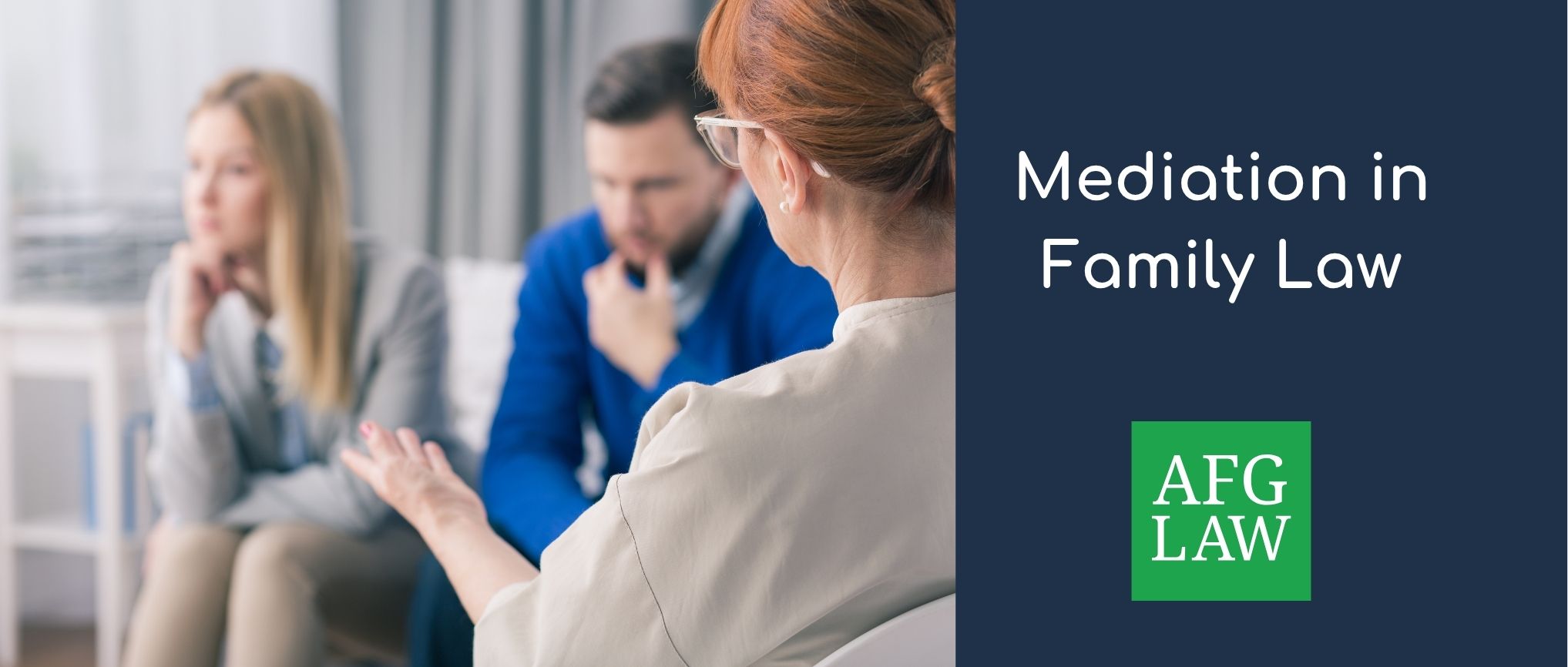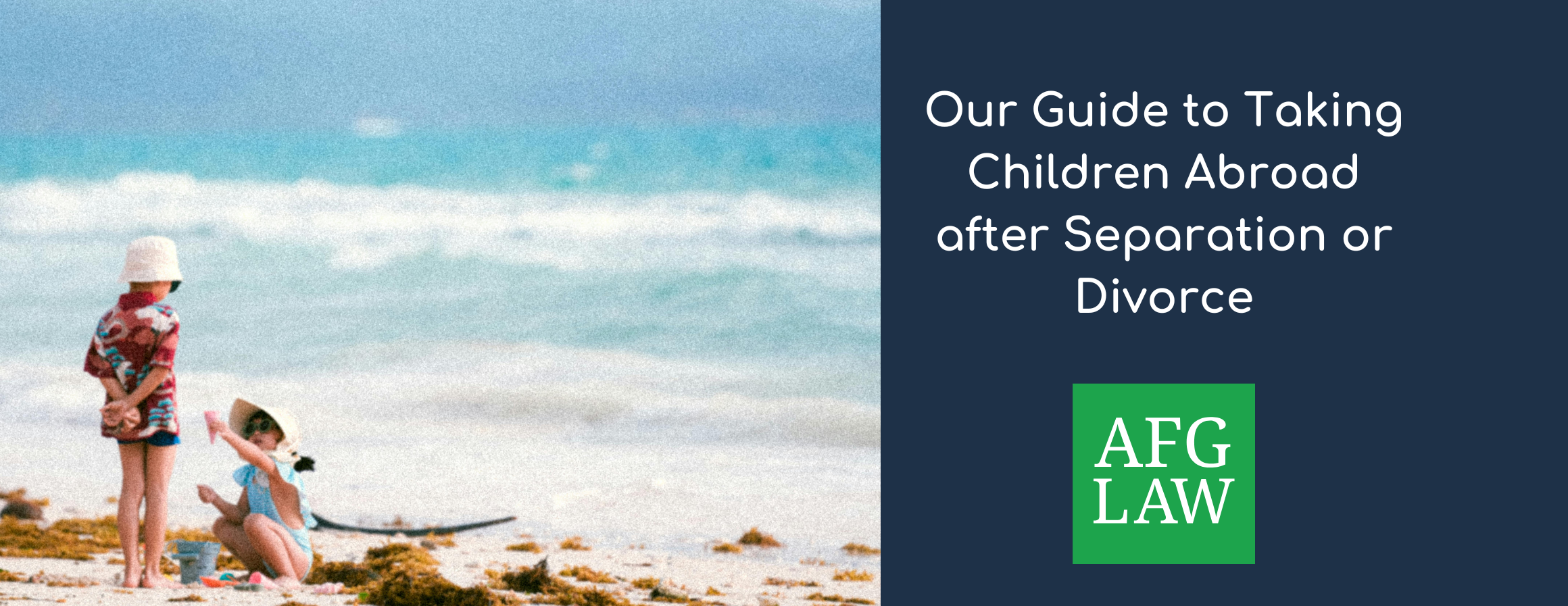A prohibited steps order is an order that can be made by a judge sitting in the Family Court. It stops a parent from taking an action they would otherwise be able to take because they have parental responsibility for a child. The ‘step’ that the court decides should be ‘prohibited’ depends on the issues before the court.
What kind of disagreements may result in an application for a prohibited steps order?
Our children solicitors frequently get asked questions like:
- Can I stop my ex from taking my child abroad?
- Can I stop my ex from changing my child’s school without my consent?
- Can I stop my ex from taking my child from nursery or school?
- Can I stop my ex from changing my child’s name?
- Can I stop my ex from applying for a passport without my consent?
- Can I stop my child from having medical treatment I don’t agree with?
If you are coming across similar issues it may be that you need to apply for a prohibited steps order, but our solicitors will advise you about different options, whether an application to court is necessary or whether there are other ways of resolving the dispute without attending court such as mediation or negotiation.
Our solicitors will also check whether a prohibited steps order is the right order for you in the circumstances; a prohibited steps order may not be made with a view to achieving a result that could be achieved by a child arrangements order.
How do I get a prohibited steps order?
If there is an issue between yourself and the other parent about what decision should be made for your child, the first step is to try and resolve it without needing to make an application to court. Our solicitors can negotiate on your behalf or support you through mediation.
If it is not possible to reach an agreement, or the situation is urgent and you need to act quickly to protect your child, then our family solicitors are able to guide you through the process of making an application to court.
Our solicitors are used to making applications for prohibited steps orders and can ensure your application and supporting documents are all prepared correctly with the evidence the court will need. AFG LAW have one of the largest family teams in the Greater Manchester area and are ideally placed to be able to provide quick, accurate advice and make emergency applications.
How does the Court decide whether a prohibited steps order should be made?
The court will consider what is in the child’s best interests and, as with any application about children, the child’s welfare will be the judge’s paramount consideration. The court will use the welfare checklist to make sure they have thought about the different aspects of the child’s welfare.
The court will only make an order if it is better to have an order, this is called the ‘no order’ principle. We have prepared a guide about what judge’s look at when making court orders about children which has more information.
What happens at a prohibited steps order hearing?
Once an application has been made to the court for a Prohibited Steps Order, the court will send a copy of the application to CAFCASS, the Children and Family Court Advisory and Support Services. CAFCASS will conduct different background checks including with the police and children’s services. A member of CAFCASS will then try to talk to the parties to see if an agreement can be reached without having to go through a full hearing at Court.
Once they have considered all of the information, they will produce a letter to the court and make recommendations about what steps might be needed. There are likely to be a number of hearings during a prohibited steps order application. The court will want to have the best evidence available and may direct reports to ensure the best information about the child’s welfare.
Our solicitors can guide you through the process and help ensure all of the issues are covered and the best evidence obtained to support your position. Our family law team appear before the local courts on a daily basis and can ensure you have representation.
Can I get a prohibited steps order urgently?
Yes, our children law solicitors frequently make applications on an urgent basis, often securing orders within 24 hours of being contacted about the problem. Our team are ideally set up to deal with urgent hearings as we have a large support team and solicitors in our local court on a daily basis.
We are trusted by a number of local charities to assist if the people they are working with have urgent legal problems and therefore have a lot of experience of dealing with emergency applications and the courts.
Applications for prohibited steps orders, specific issue orders or child arrangements orders may be made without notice, sometimes called ‘ex parte’, to the other person. This is not how our legal system is designed to operate and an application made on a without notice basis will be carefully considered by a judge and will only be made in exceptional circumstances and on strong evidence. Some of the reasons that a court may accept that an application may be made without notice to the other parent is if:
- if the person making the order were to tell the other parent this would enable them to take steps to defeat the purpose of the prohibited steps order
- the case is one of exceptional urgency—and there is no time to give notice (either by telephone, text, email or otherwise) before the injunction is required to prevent the step the parent wants the court to stop
- if the other parent knew that the person was making an application for an order it would be likely to expose the person applying for the order or the child to unnecessary risk of physical or emotional harm
Our solicitors will be able to advise you whether your application should be made on an emergency basis and provide you with urgent legal support.
How long does it take to get a prohibited steps order?
This will depend on your circumstances; how urgent the issue is and whether you need to safeguard your child’s welfare immediately. Our solicitors will be able to give you tailored legal advice, feel free to contact our friendly children specialists today for an initial chat. Legal aid may be available for prohibited steps orders. Please see our legal aid and children law guide.













